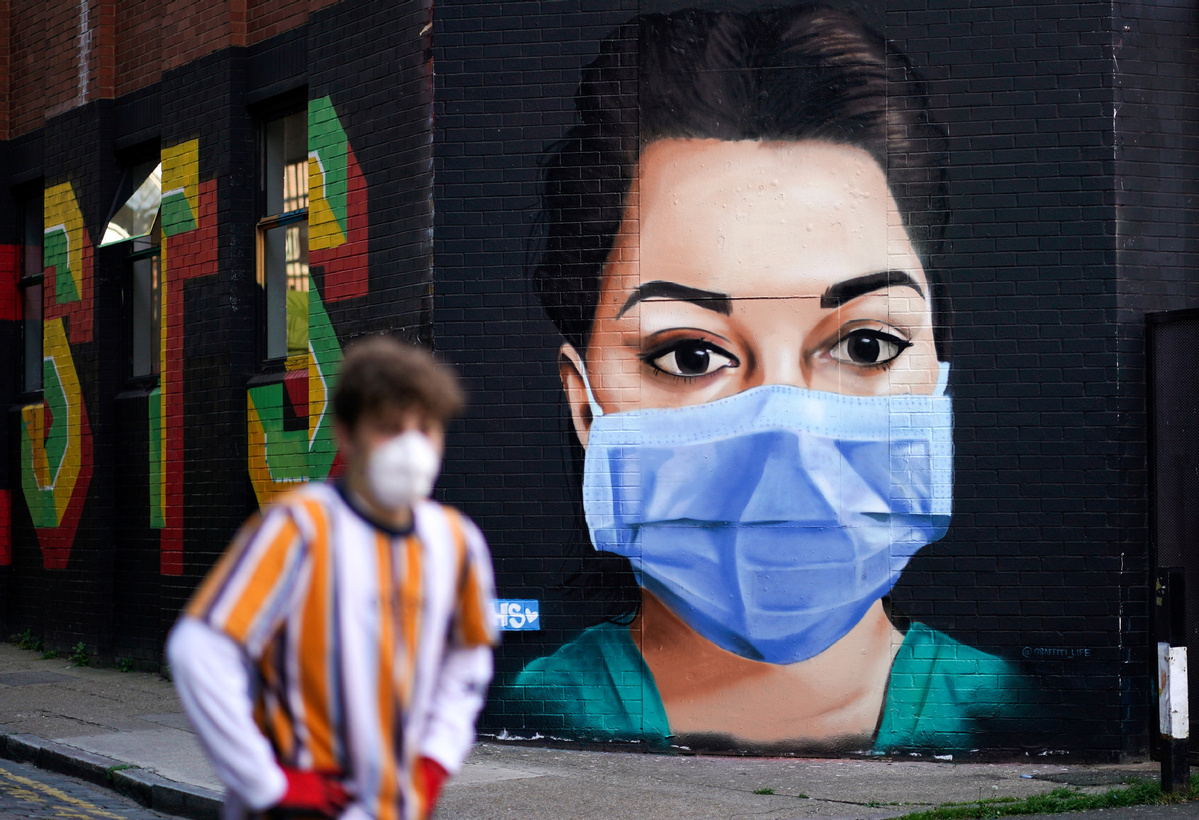Masks not linked with false sense of security, study shows
By ANGUS McNEICE in London | China Daily Global | Updated: 2020-07-29 09:52

New analysis from the United Kingdom may sway the debate over whether wearing masks to protect against COVID-19 leads to a false sense of security.
Masks are now compulsory in many enclosed public spaces in the UK, and the use of face coverings is now mandated or recommended in more than 160 countries to reduce transmission of the novel coronavirus.
But some health experts have argued that wearing a mask could trigger a trend known as "risk compensation", where one safety measure paradoxically leads to an overall uptick in risky behaviors in the population.
Academics have looked into this phenomenon in a number of areas over the years, including traffic safety and types of contraception. For example, some studies have explored if mandates on bike helmets lead to more accidents since helmeted cyclists may feel confident to travel at greater speeds.
In the context of COVID-19, the argument goes that people might be less prone to regularly apply hand sanitizer or practice effective social distancing, because of the security they feel behind a mask.
Early on in the pandemic, the World Health Organization warned that masks could "create a false sense of security that can lead to neglecting other essential measures, such as hand hygiene practices".
But a recent review of 22 studies has failed to establish risk compensation trends among mask wearers during previous outbreaks of respiratory illness. The review was published this week in the British Medical Journal and conducted by researchers at Cambridge University and King's College London.
"The concept of risk compensation, rather than risk compensation itself, seems the greater threat to public health through delaying potentially effective interventions that can help prevent the spread of disease," said Theresa Marteau, who is director of the Behaviour and Health Research Unit at Cambridge.
Marteau and her colleagues looked at 22 studies on mask wearing during past disease outbreaks, six of which looked at hand washing practices among wearers. None of these six studies reported reduced hand washing among wearers, and two studies showed better hand hygiene among those who regularly used face coverings.
The team also found three studies that showed people tend to move away from those wearing a mask, suggesting that face coverings do not adversely affect physical distancing, at least by those surrounding the wearer.
"Many public health bodies are coming to the conclusion that wearing a face covering might help reduce the spread of SARS-CoV-2, and the limited evidence available suggests their use doesn't have a negative effect on hand hygiene," said James Rubin from the Department of Psychological Medicine at King's College London.
The authors note that some of the studies in the analysis have not been peer-reviewed, and that more research is needed. Some experts have warned against drawing firm conclusions from the new analysis.
























